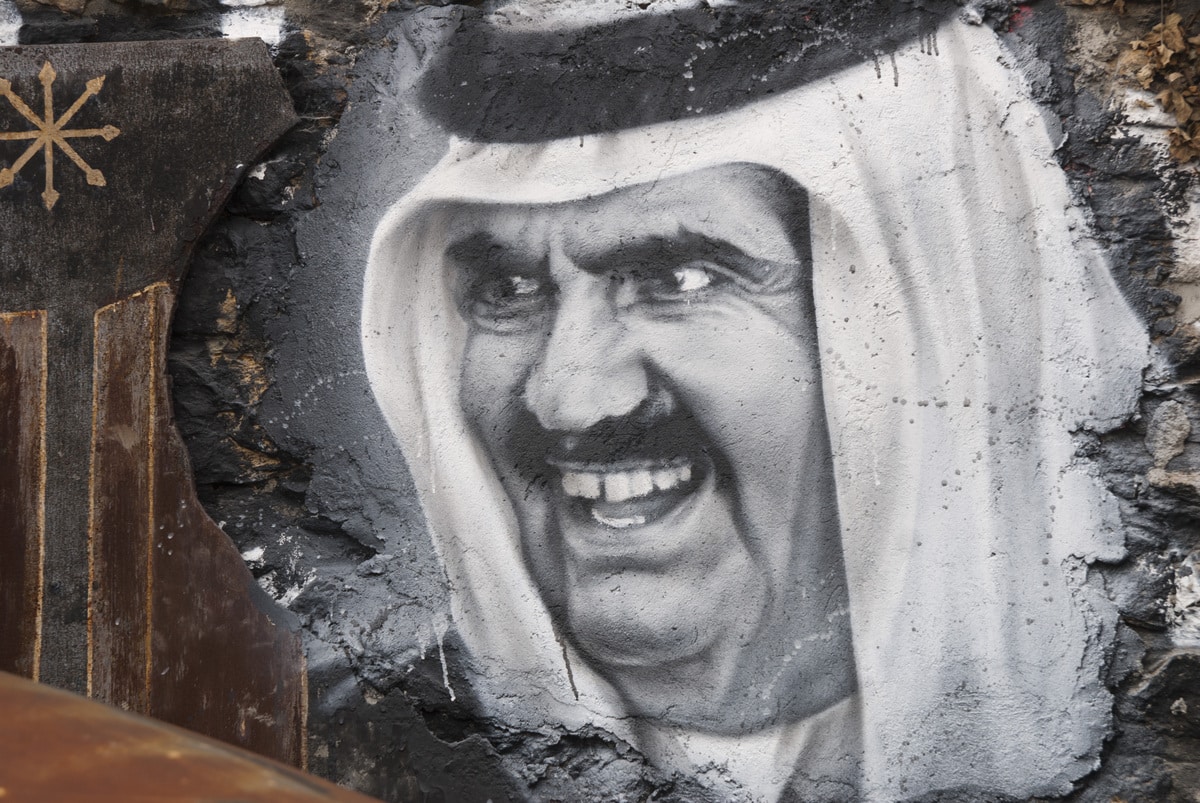For many years, Qatar has been at the center of geopolitical tensions in the Middle East as many Western and Arab nations have accused the country and its leadership of sponsoring terrorism. In particular, many Arab leaders have noted how, under the leadership of former Emir Hamad bin Khalifa al Thani, Qatar has funded terrorist outfits across the Middle East, North Africa, and Western Africa. These funding efforts bolster Qatar’s efforts to expand its political, economic, and religious influence worldwide, while simultaneously posing a significant threat to regional stability.
Emir Hamad bin Khalifa al Thani was the Emir of Qatar between 1995 and 2013. In 2013, he abdicated, and his son, Tamim bin Hamad al Thani took power. Under the former Emir’s leadership, Qatar’s foreign policies became grounded in two forms of global competition. First, Qatar was competing with Saudi Arabia to become the dominant Sunni Islam nation. Second, Qatar was competing to spread the Sunni branch of Islam around the world and undermine the Shiite branch of Islam. The former Emir also focused on expanding Qatar’s economic and political influence around the globe. These efforts are often intertwined with Qatar’s religiously motivated foreign policies.
For example, some world leaders have accused Qatar of funding Islamist and separatist groups in northern Mali. In early 2012, Islamist groups took advantage of a military coup in Mali’s capital Bamako to seize control over the north part of the country. In response to the crisis, France, Mali’s former colonial ruler, deployed troops to the West African nation to help promote stability. In 2013, two French politicians — far-right leader Marine Le Pen and Communist Party Senator Michelle Demessine — accused Qatar of providing material support to separatist and Islamist groups based in northern Mali and supporting Islamic fundamentalism in Africa. The Qatari government pushed back on these notions and called for France to engage in dialogue with the Islamist groups.
Despite global outcry, Qatar has continued to support terror groups in northern Mali. This is because Mali is of strategic importance to Qatar. Since the 1980s, Qatar has established an array of schools, charities, and madrassas (Muslim educational institutions often affiliated with a mosque) across Mali to build religious bridges between the two nations. Mali is also a critical touchpoint in Qatar’s efforts to expand its influence in West Africa and the Sahel.
In addition, the West African nation is home to numerous oil and gas reserves, but it needs to develop the necessary infrastructure to tap into these reserves. By establishing strong economic, political, and religious relations with Mali earlier on, Qatar is now well-positioned to help reap the rewards of these reserves. It has also fostered deep relations with the Islamist groups in the north as they control land rich in gold and uranium deposits.
Similarly, in 2014, Germany’s Development Minister Gerd Mueller accused the regime of serving as a conduit for finances that went to the Islamic State’s terror movement, which swept across the Middle East and resulted in numerous attacks in Europe and the United States. Qatar, however, has denied these claims.
More recently, in June of this year, a group of Syrians pursued legal action against the Qatari regime for providing hundreds of millions of dollars to the al-Nusra Front in Syria. The United States, United Kingdom, and the UN Security Council have designated the al-Nusra Front as a terrorist organization. The group is also an affiliate of the terror group al-Qaeda. According to the legal action, major financial institutions in Qatar, including the Qatar National Bank (QNB) and the Doha Bank, and numerous charities, businessmen, politicians, and civil servants have helped fund the al-Nusra Front.
Qatar has also played a pivotal role in fuelling the ongoing Israel-Palestine conflict. Qatar is the primary financial backer and the strongest foreign ally of Hamas, a Palestinian militant and political organization that controls much of the Gaza Strip. Recent estimates suggest that the Gulf nation has provided over $1.8 billion in support to the group, with much of this funding going towards Hamas’ military wing, the Izz ad-Din al-Qassam brigades. Additionally, in 2012, the former Emir became the first state leader to visit the Hamas government. Hamas is considered a terrorist organization by powers such as the United States, the European Union, Israel, Japan, and Canada. Iran also backs Hamas, and Qatar and Iran have fostered increasingly close relations over the past few years.
The Middle East, North Africa, and West Africa are all regions that have been struggling with political and military instability, violence, and oppression for many years. Qatar has hindered the region’s progress and augmented geopolitical tensions by financing terrorist groups that help carry out violent attacks and undermine peace efforts. In 2017, numerous Arab nations imposed an air, land, and sea blockade on Qatar. Among the four Arab nations’ chief complaints was that Qatar supported terrorism and the Iranian regime, therefore promoting instability in the region.
Like other regional powers, Qatar wants to expand its political, economic, and religious influence worldwide. However, to achieve these efforts, the group has provided hundreds of millions of dollars in funding to terrorist groups in the Middle East and Northern and Western Africa. This has sparked geopolitical tensions between Qatar and Arab nations and fostered greater instability and violence. In order to hinder further violence in the region, it is imperative that the Qatari royal family halt funding to all terrorist groups and instead promote regional cooperation.



















